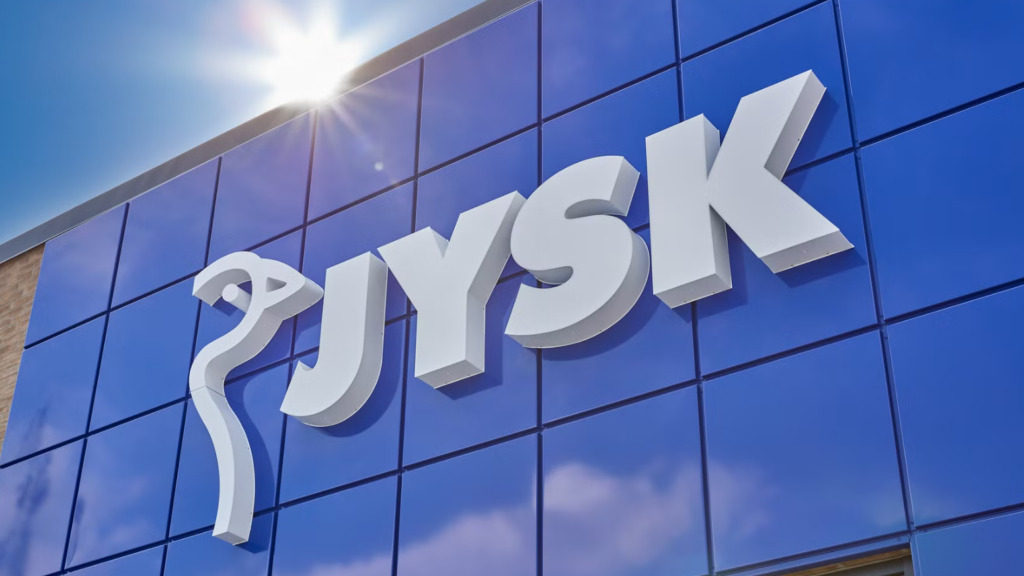The internationally acclaimed Science Based Targets initiative (SBTi) has approved JYSK’s greenhouse gas emissions reduction targets in accordance with the Paris Agreement. The greatest impact will come from reducing emissions in the production of products.
Since JYSK founder Lars Larsen opened the first JYSK store in Aarhus, Denmark, in 1979, JYSK has grown its business around the strong values of Tradesmanship, Colleague and Corporate Spirit. Building on this foundation with SBTi targets approved, JYSK now has a clear roadmap for reducing its climate footprint.
“We are proud to receive the Science Based Targets initiative’s stamp of approval on our climate targets. Sustainability is a fundamental part of our commitment to our customers, our employees and the planet – it is a big task, but a necessary one. We are committed to doing our part to reduce our impact on the climate and we want to help our suppliers do the same. Sustainability should be an accessible and affordable choice for our customers when shopping great offers at JYSK,” says President and CEO of JYSK, Rami Jensen.
93% of JYSK’s total greenhouse gas emissions come from the products, goods and services purchased from suppliers. As part of the SBTi approved targets, JYSK will require suppliers to calculate their own emissions and have their targets approved by SBTi before the end of the financial year 2028. To reach this ambitious goal, JYSK will build on an already strong collaboration with its suppliers on topics such as the rights of workers in the supply chain through the international organisation amfori.
“Because the majority of our greenhouse gas emissions come from the production of our products, we need to deliver results through our suppliers to reach our own targets. Moving forward, we will support them in initiating their work on climate accounting so that together we can deliver on our commitment to reduce our climate footprint,” says Rami Jensen.
Although JYSK’s greenhouse gas emissions within its own operations cover under 2% of the company’s total emissions, JYSK will also work to reduce its footprint here. With the financial year 2022 as the baseline year, JYSK aims to deliver an 50.4% absolute CO2e reduction by the end of the financial year 2032.
One way to reach this goal is through renewable energy solutions such as solar panels on the roofs of the distribution centres. This is already showing positive results in multiple countries, where solar panels now are responsible for up to 30% of the energy used in the distribution centres.
“In the coming years we will look at solutions to reduce our emissions that include powering, heating, and cooling our stores, distribution centres and offices, and reduce emissions from our company-owned vehicles. We know it is a small percentage of our total footprint, but it is still important work to be done,” says Rami Jensen.
JYSK has set a near term goal for scope 1 and 2, which covers its own operations and scope 3, which covers indirect emissions within the value chain.
JYSK’s climate targets are:
- JYSK commits to reduce absolute scope 1 and 2 GHG emissions 50.4% by FY2032 from a FY2022 base year.*
- JYSK commits that 72.5% of its suppliers by emissions covering purchased goods and services will have science-based targets by FY2028.
- JYSK’s total emissions divided into scopes 1, 2, and 3:
- 1,85% Scope 1 and 2
- 98,15% Scope 3
The target boundary includes land-related emissions and removals from bioenergy feedstocks.
“I believe that we have set ambitious and impactful targets for the coming years across our business with focus on our customers, our value chain and our workplace to reduce our climate impact. I look forward to this next step in JYSK to ensure that we stay competitive and remain customers’ first choice within sleeping and living,” says President and CEO of JYSK, Rami Jensen.
The newly SBTi approved greenhouse gas emissions reduction targets are part of JYSK’s sustainability strategy, A Great Offer for Generations, which builds on many years of responsible business actions in the company. The strategy focuses on 5 main areas where JYSK sees greatest impacts, risks and opportunities. The strategy supports actions to make a positive change for the climate and the societies where JYSK is present while being transparent about the process and work being done.
The five areas are:
Climate action
Responsible Value Chain
Trusted quality products
Attractive and inclusive workplace
Data transparency















